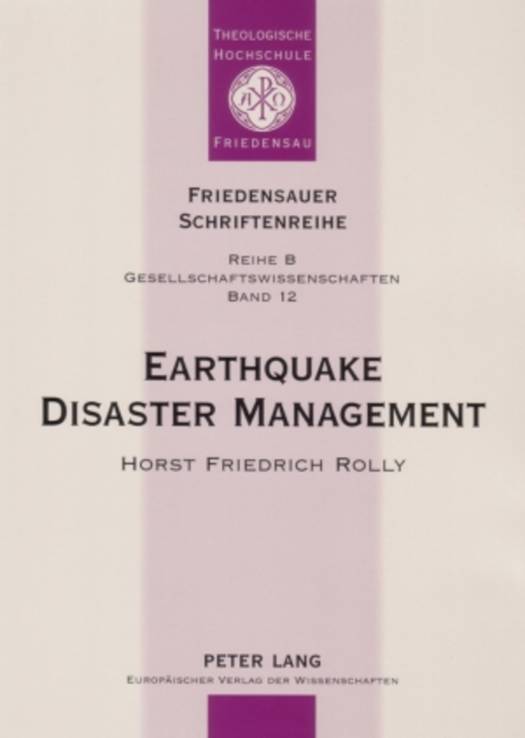
- Afhalen na 1 uur in een winkel met voorraad
- Gratis thuislevering in België vanaf € 30
- Ruim aanbod met 7 miljoen producten
- Afhalen na 1 uur in een winkel met voorraad
- Gratis thuislevering in België vanaf € 30
- Ruim aanbod met 7 miljoen producten
Zoeken
Earthquake Disaster Management
Focussing on the Earthquake of September 30, 1993 in Latur and Osmanabad Districts, Maharashtra, India and the Reconstruction and Rehabilitation Project at Gubal Village Where Geodesic Domes Were Constructed as Earthquake Resistant Housing
Horst Friedrich Rolly
€ 81,45
+ 162 punten
Omschrijving
This documentation gives a detailed account on the involvement of the government, army and civil society in the rescue and relief operations following the Latur/Killari earthquake of September 30, 1993 in Maharashtra, India and the Reconstruction and Rehabilitation of Gubal village which was completely destroyed by the quake. Written twelve years after the disaster struck, this documentation provides insight into the long-term implications of administrative decisions on resettlement and reconstruction, the durability of the geodesic dome as an earthquake resistant housing design built for the survivors and the social sustainability and cultural acceptance of rehabilitation measures. The study is complemented by theoretical guidelines on humanitarian aid and a general introduction to Global Governance in disaster management in the framework of human rights, codes of conduct, and ethical standards.
Specificaties
Betrokkenen
- Auteur(s):
- Uitgeverij:
Inhoud
- Aantal bladzijden:
- 240
- Taal:
- Engels
- Reeks:
- Reeksnummer:
- nr. 12
Eigenschappen
- Productcode (EAN):
- 9783631560945
- Verschijningsdatum:
- 18/12/2006
- Uitvoering:
- Paperback
- Formaat:
- Trade paperback (VS)
- Afmetingen:
- 148 mm x 210 mm
- Gewicht:
- 329 g

Alleen bij Standaard Boekhandel
+ 162 punten op je klantenkaart van Standaard Boekhandel
Beoordelingen
We publiceren alleen reviews die voldoen aan de voorwaarden voor reviews. Bekijk onze voorwaarden voor reviews.











